Lockpicking has a lot to teach technology leaders about much of the work we do on a day-to-day basis.
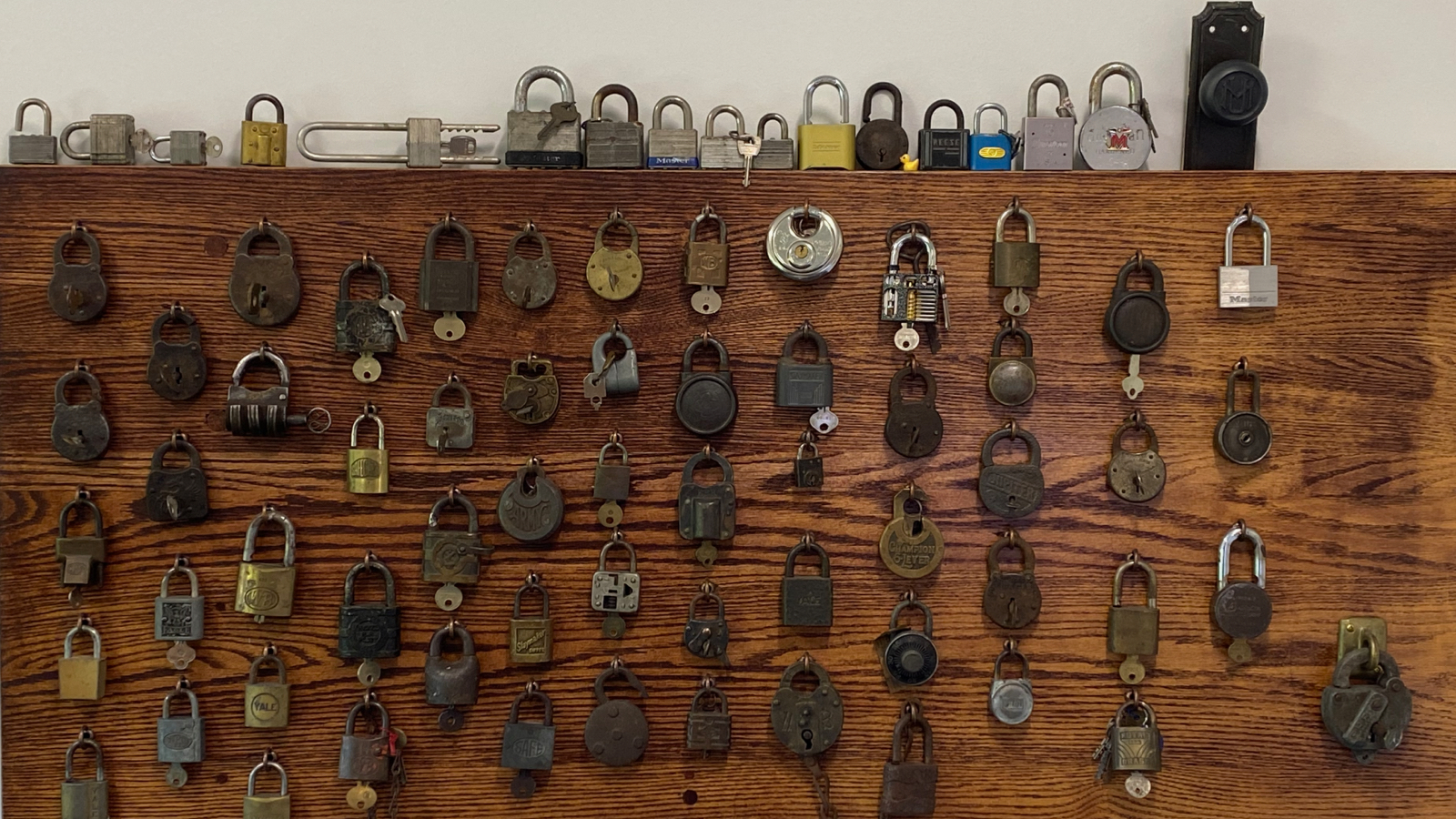
One of the things that makes the EDUCAUSE community so wonderful is that for a group of people who have a common passion around technology innovation, there is a vast range of perspectives, opinions, voices, and approaches regarding just about everything under the sun. So when you have a fairly unusual hobby—like picking locks—and stumble on someone else in our community who shares your interest, it's a pretty remarkable thing.Footnote1 When David Seidl recently joined the EDUCAUSE Board of Directors, the two of us discovered, in our first Zoom conversation, that we both entertain ourselves by picking locks, a well-established hobby and even competitive sport. David's giant wall of locks behind his desk was pretty much impossible to miss. John's modest basket of modern locks pales in comparison to David's inherited collection, which belonged to his grandfather whose second career was as a locksmith.
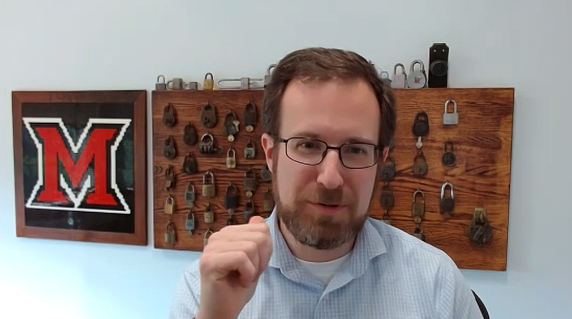
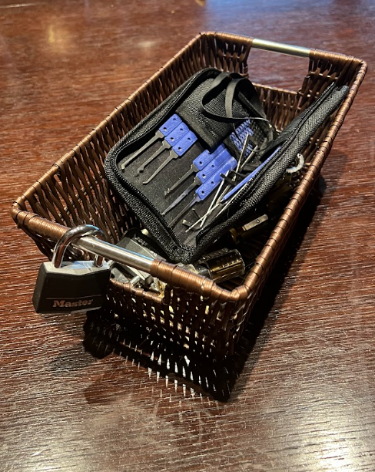
First of all, no, neither of us wear black outfits and lead a life of crime in our off hours, and yes, we have found out that you have to be thoughtful about where you wander with a lockpick in your pocket. Caution is especially warranted in David's home state of Ohio (where lockpicks are considered "criminal tools" if you have criminal intent), and in Japan, going anywhere with a lockpick is a really bad idea. But as long as you're thoughtful and pick only locks that you own, locksports and lock-picking can be a very satisfying hobby.
With all of those caveats out of the way, the more we talked about our mutual hobby, the more we became convinced that locksports has a lot to teach technology leaders and is a fun metaphor for much of the work we do on a day-to-day basis.
Do You Want to Pick Locks?
First, make sure you understand the legality of picks and picking locks in your area. See Lockpick Laws in the United States.
Get some lockpicks:
Use a clear practice lock (which shows the lock mechanism as you pick it) to learn the basics, but be warned: this is much simpler than most real locks!
Check out our favorite lock-picking videos on YouTube:
See the Reddit r/lockpicking General Wiki for some great overall information and resources.
Meet other lockpickers through TOOOL: The Open Organisation Of Lockpickers.
Don't Force It
One of the first things you learn about lockpicking is that you have to learn how to "feel out" the lock. This is very similar to entering new professional situations, either as a new leader or with a new group. First, stop and feel things out. Listen more than you talk, and know the lay of the land before you make decisions you might regret. Brute force may work sometimes, but often it has unintended consequences. Good leaders—and good lockpickers—are learners.
Resilience Matters
Another thing that lockpickers learn early on is to stick with it. Often the first lock you pick will be a training lock and will open quite easily—probably giving you the initial sense that lockpicking is pretty easy. The next lock you encounter won't be quite as simple, however, and when you try a more secure lock, you're usually in for a real challenge. As with most things worth doing in life, sticking with it matters. Our lesson here isn't to keep doing the same thing and making the same mistakes over and over. That's not persistence. Persistence is sticking with a task and learning until you overcome its challenges. Resilience is trying different approaches, as well as knowing when to set the work aside so that you can come back to it with renewed energy.
There's a Learning Curve
Learning curves, particularly the steep ones, can feel impossible, especially when you watch someone like the LockPickingLawyer open, in seconds, a lock that you've struggled with for hours. We all see this in our professional lives too. People are doing things that we feel are beyond our reach, or that we don't know how to do, and this can be intimidating, scary, or just plain discouraging. When someone who seems like a natural for the situation just breezes right past us, imposter syndrome can strike hard.
If you get a chance to ask people about the things they're good at, you'll tend to find that they had to climb up that same curve. Lockpicking teaches us that muscle memory, technique, and an understanding of how the locks work make them easier to pick. So stick with the learning curve if it's important to you to do so. And know that your learning curve might involve taking a break from a vexing lock (and trying another one).
Using the Right Tools Can Make Things Easier
If you've watched enough TV shows and movies, you know that the heroes walk up to locks with a paperclip and open any lock in seconds. It's just how things are done.
Except . . . it's not. As you learn lockpicking, you start to see the enormous variety of tools that are used. Having the right tools and knowing how to use them can make a formerly impossible lock simple to pick—or, ok, at least possible.
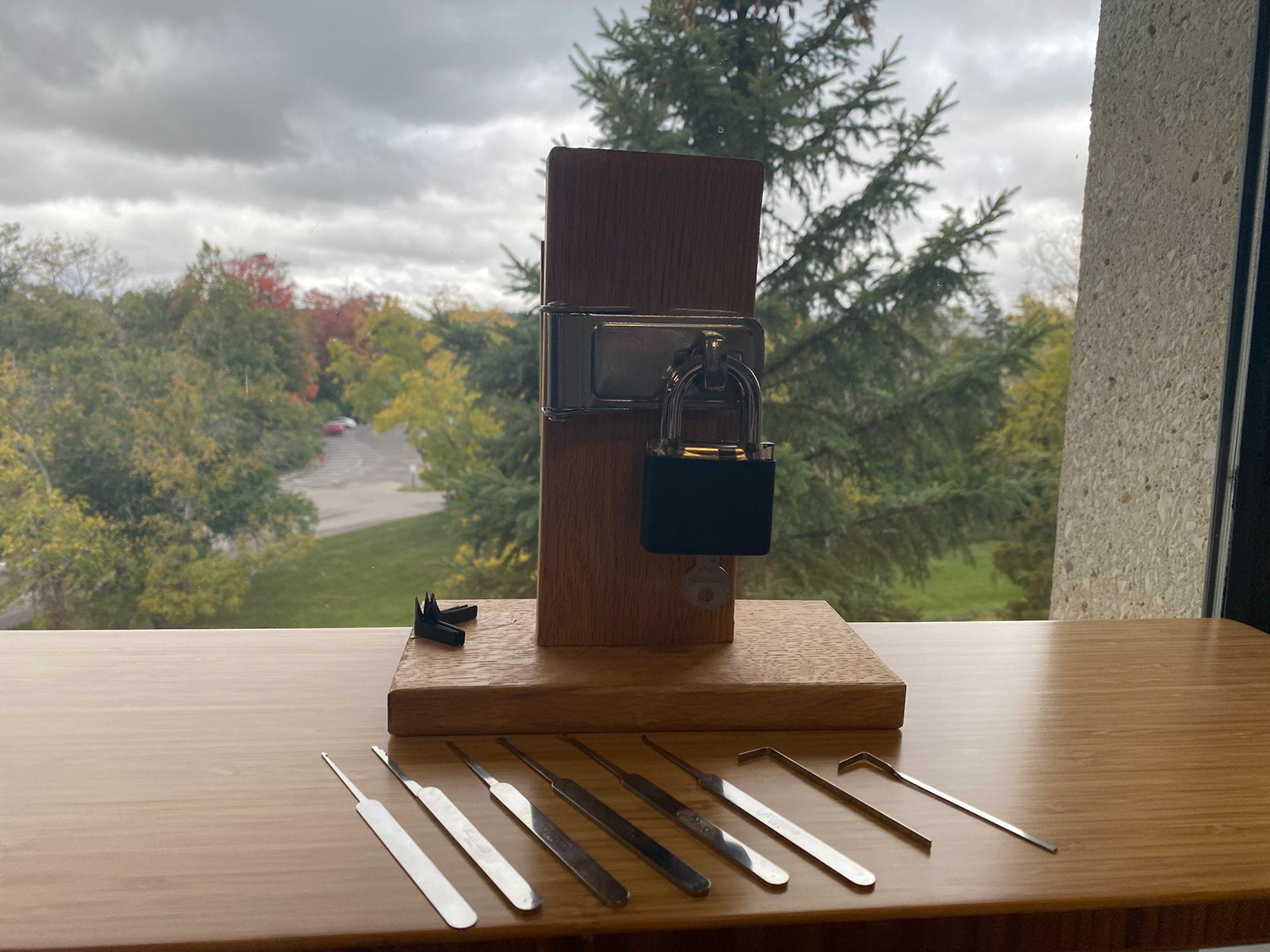
When you're facing a challenge, ask yourself if you're using the right tool. We all know people who take the same approach to every situation they encounter. It's like grabbing a hammer from the top of your toolbox every time you tackle a home improvement task. Instead, taking the time to figure out the best tool for the job can make finishing the task easier and faster.
That's why we like to recommend EDUCAUSE Institutes. These professional development opportunities make your toolbox bigger and better equipped with tools and give you opportunities to see how other people apply the tools they have. With EDUCAUSE Institutes, you get not only a set of tools but a group of colleagues and probably some friends to be a text message away when you need help.
The Lock You Can't Pick
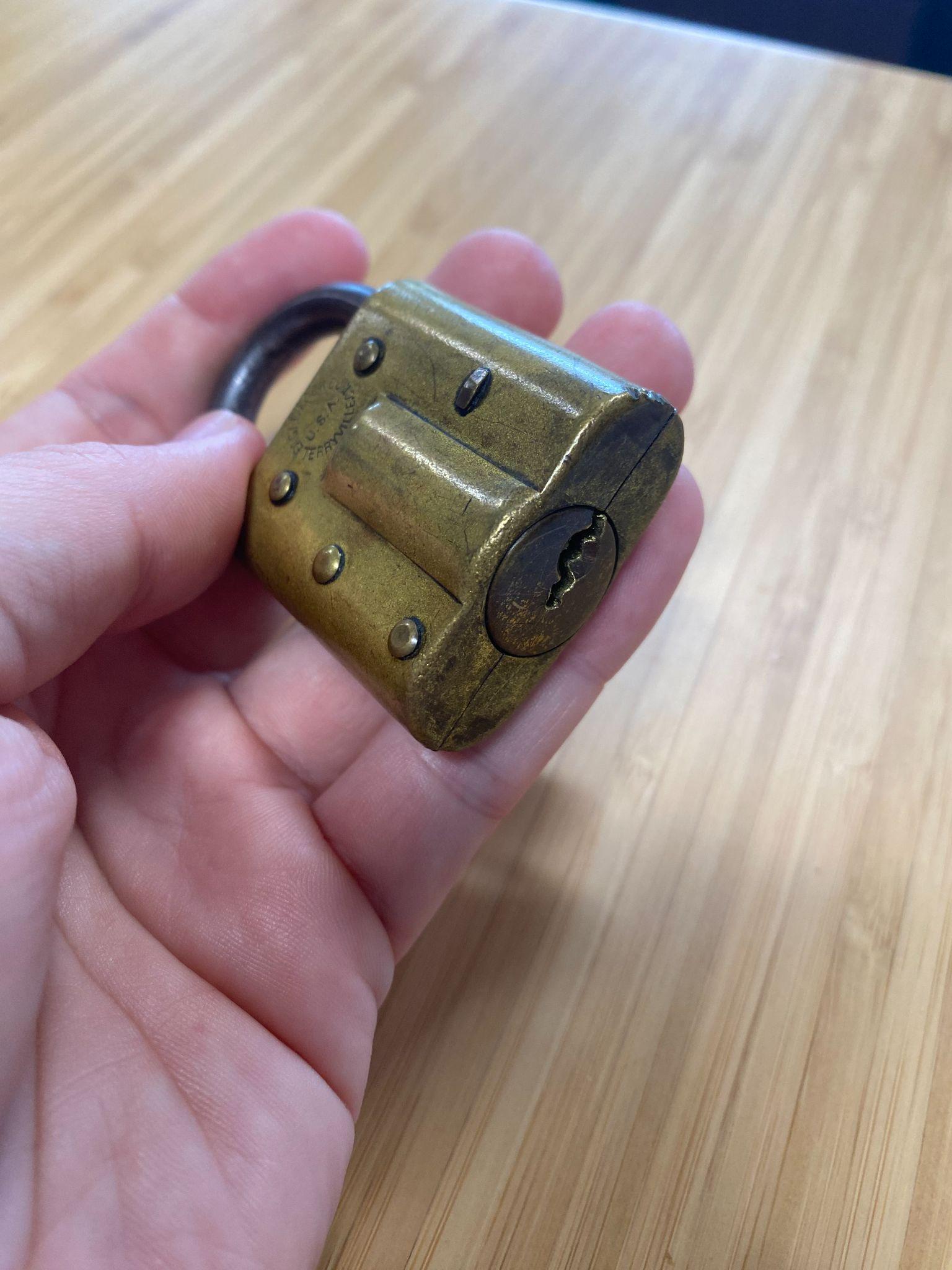
If you're working in a familiar area, you may become accustomed to being successful most of the time. But with both leadership and locks, you'll always run across something you just can't get to work the way you want it to or a problem you just can't solve. Those defeats can be crushing, they can teach us humility, or they can present us with an engaging challenge. How you handle the challenge at any given point in your career may vary—and it's both normal and ok to have that response change based on the moment in time you're in.
What happens when you finally do unlock the lock that defeated you? Well . . . there's another one next in line to challenge you. That's the great thing about life and about picking locks. Perhaps like life, the lock you opened once may defy you the next time you pick it up. See "humility" above.
Build Community
David's lockpicking wall took the two of us down a rabbit hole of stories and connections, reminding us that community can come from surprising places at unexpected times if you're open to it. Serendipitous community is delightful when it happens, but community can also be something you need to seek out or even build intentionally.Footnote2 And if you're wondering why there isn't a community for something that matters to you, maybe the universe is inviting you to create the community and make some connections that matter. Of course, this is another place where EDUCAUSE can help. You can join—or start—a community group, and you can find and make networks at conferences and events. Whether you're coming together to pick your brain for insights or to pick locks, EDUCAUSE is designed to help you discover lifelong friends and allies.
Notes
- John is still waiting to meet another EDUCAUSE community member who is learning to play the accordion, but he is discouraged because one of his kids gave him a framed picture of the quote (attribution unknown): "A gentleman is a man who can play the accordion but doesn't." Meanwhile David continues to welcome fellow medieval armor enthusiasts and blacksmiths to reach out to him. Jump back to footnote 1 in the text.
- For an example of an intentional community, check out Nathan Heald and John Stitt, "Lock Picking for InfoSec," EDUCAUSE Security Professionals Conference, May 14, 2019. Jump back to footnote 2 in the text.
David Seidl is Vice President for Information Technology and CIO at Miami University.
John O'Brien is President and CEO of EDUCAUSE.
© 2024 David Seidl and John O'Brien. The content of this work is licensed under a Creative Commons BY-NC-ND 4.0 International License.
